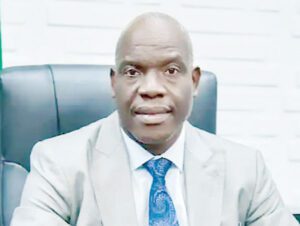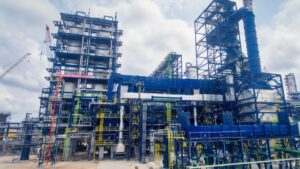


OPEC woos Namibia as African nation prepares to produce from 2030
The OPEC+ oil producers group is eyeing Namibia for possible membership as it sets up what could be Africa’s fourth-largest output by the next decade.
An African industry official and sources said on Tuesday.
TotalEnergies (TTEF.PA), opens new tab and Shell (SHEL.L), opens new tab in recent years have made discoveries estimated at 2.6 billion barrels, setting the stage for the southern African country to plan production from about 2030.
The initial focus for OPEC+ would be to see Namibia join its Charter of Cooperation, the sources said, a grouping that engages in longer-term dialogue about energy markets.
Eventually OPEC, the core oil exporters group that with Russia and others forms OPEC+, would like to see Namibia become a full member, said NJ Ayuk, executive chairman of the African Energy Chamber.
This Ayuk said had been involved in facilitating talks between the two sides.
OPEC had begun its “charm offensive,” he said, adding that the outcome of the talks were unclear at this stage.
OPEC did not immediately respond to a request for comment.
OPEC Secretary-General Haitham Al Ghais was quoted in February as saying OPEC was holding talks with several nations on joining the charter, without naming them.
OPEC in a tweet at the time said Al Ghais met Namibian Minister of Mines and Energy Tom Alweendo at a conference in Nigeria where the prospect of OPEC and Namibia working together “under the umbrella of the charter of cooperation” was raised.
In 2023, Namibian Petroleum Commissioner Maggy Shino expressed interest, opening a new tab in joining the OPEC “family,” according to a report by S&P Commodity Insights, known as Platts.
Yet in March, Minister Alweendo said that OPEC membership was not on the cards and did not want to be drawn on whether Namibia was considering joining the charter.
“We haven’t been approached by anyone to join OPEC. OPEC members are petroleum exporting countries and we are not there yet,” he said.
“That is a consideration only after we have started to produce,” Alweendo added.
Talks between OPEC and the Namibian government will likely continue in late April, however, when OPEC’s Al Ghais is scheduled to deliver an address to a Namibian energy conference, said Ayuk, who is also a speaker at the event.
About 2.6 billion barrels of oil have been discovered in Namibia this decade so far, Pranav Joshi of energy consultancy Rystad Energy told Reuters.
In addition to Total and Shell, firms including Chevron (CVX.N), opened a new tab, Rhino Resources, Eco Atlantic Oil & Gas and Galp Energia (GALP.LS), opened a new tab conducting exploration and appraisal activities.
Based on the existing discoveries, Namibia is looking at 700,000 barrels per day (bpd) of peak production capacity by the next decade, Joshi estimated.
That is smaller than Angola’s output of some 1.1 million bpd but Joshi noted Namibia’s number could rise with further successful exploration.
Angola had quit OPEC in December of 2023 over a lower-than-expected output ceiling it received from OPEC+ whose members are curbing production to help support prices.



